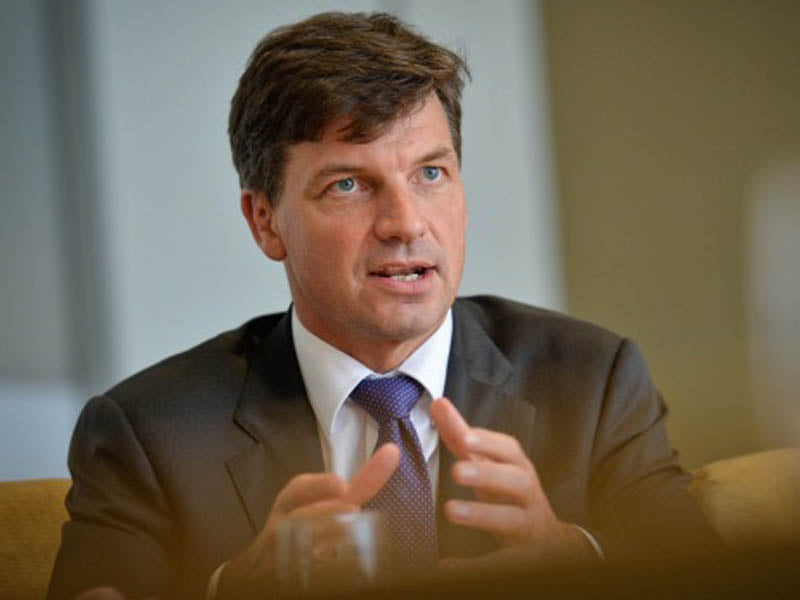The Prime Minister and the Industry Minister are sitting on an estimated $456 million in manufacturing grant announcements in the lead up to the May election, with Labor raising concerns the flagship $1.3 billion program has been politicised by the Coalition.
The Morrison government has already publicly committed nearly $1 billion in grants to manufacturing projects from its flagship Modern Manufacturing Initiative, which it says will leverage another $2.48 billion in private sector investment.

Despite being announced in 2020, most of the government grant commitments were only made in March this year, while up to $456 million more in announcements are expected to be made in the run up to the May election.
Labor has warned program changes and its unusual structure, which allows the Prime Minister to have the final call on the largest grants, has “baked in” rorts to the scheme, which is now being used as an “election slush fund” with grants being held back for political reasons.
The government and the Industry department have defended the timings, putting delays down to a slower than anticipated early roll out and necessary due diligence on recipients.
The Industry department has confirmed more large manufacturing grants each ranging from $20 million to $200 million are coming, while recommendations for another $280 million in grants from smaller streams are also sitting with Angus Taylor.
A full allocation of the remainder of these streams would set up around $456 million in announcements before the May election.
The $1.3 billion Modern Manufacturing Initiative was announced in October 2020 and provides funding to Australian manufactures in six key sectors under three grant streams: translation, integration and the much larger collaboration.
Applications to the $800 million collaboration stream closed in September last year. An expert panel made merit assessments, ranking the eligible applications before Industry Innovation and Science Australia added strategic input.
The advice was provided to Industry minister Angus Taylor and recommendations discussed with the Prime Minister and ministers from potential recipients’ portfolio area, such as health or defence.
A flurry of announcements beginning on March 1 has seen around $624 million of this collaboration stream funding committed to a dozen large projects, and attracted criticism from Labor about alleged deliberate delays to announcements to maximise political impact.
The March and early April announcements leaves around $176 million to be committed under the collaboration stream and the Industry department has confirmed more announcements are being prepared.
The second round of the smaller integration and translation streams were brought forward last year and allocated $280 million.
Applications closed in mid-January and recommendations are now sitting with the minister, Industry department officials confirmed last week.
Shadow Industry minister Ed Husic on Tuesday said the announcements had been held back to help the Coalition’s election prospects.
“It’s typical – and unacceptable – that the Morrison-Joyce Government chose to hold back around two-thirds of industry funding until mid-February for their own electoral gains.” Mr Husic told InnovationAus.
“When Australian industry and workers needed the government to get their act together, Scott Morrison’s government wasn’t there to help. The COVID pandemic hit industry hard, and the Morrison government went missing in action when industry was trying to get back on their feet. Now that they need an election win, the Morrison government is turning up everywhere to make an announcement and chase a vote. Industry deserves better than that.
Industry department officials have rejected suggestions MMI grants have been delayed for political reasons, telling a Senate estimates hearing on Friday the setbacks that brought announcements in line with the election were down to the due diligence the department needs to perform on grant applicants.
Asked why the spend profiling in budget papers had been updated this year to add $60 million to the election year’s allocation, department secretary David Fredericks said he suspected this was because of a slower roll-out than anticipated in the first year rather than politicisation.
“These programs are never easy. You get criticised for doing them too slowly and then you get criticised for doing them too quickly,” Mr Fredericks said.
The Secretary also pointed to due diligence checks slowing down announcements.
“It is a balance. We do our very best to strike the right balance between all necessary due diligence which we need to do to satisfy our responsibilities, achieve value for money and look after the interests of the taxpayer and the balance of keeping a program moving in order to achieve our policy outcomes.
“So it’s a balance. At the end of the day, I am accountable for that balance and I’m satisfied with where we’ve landed.”
Do you know more? Contact James Riley via Email.


When oh when can this kind of blatant pork barreling be stopped